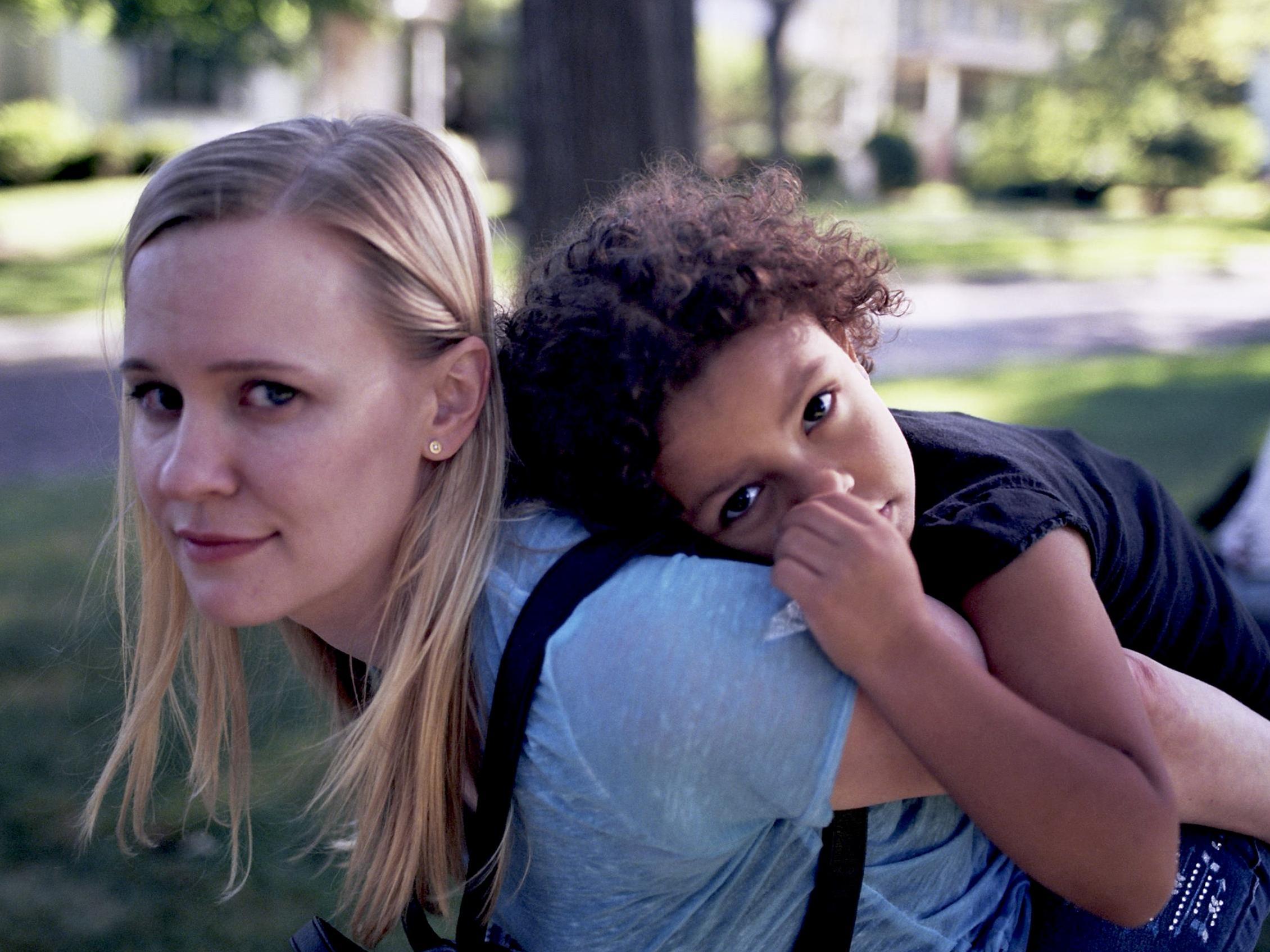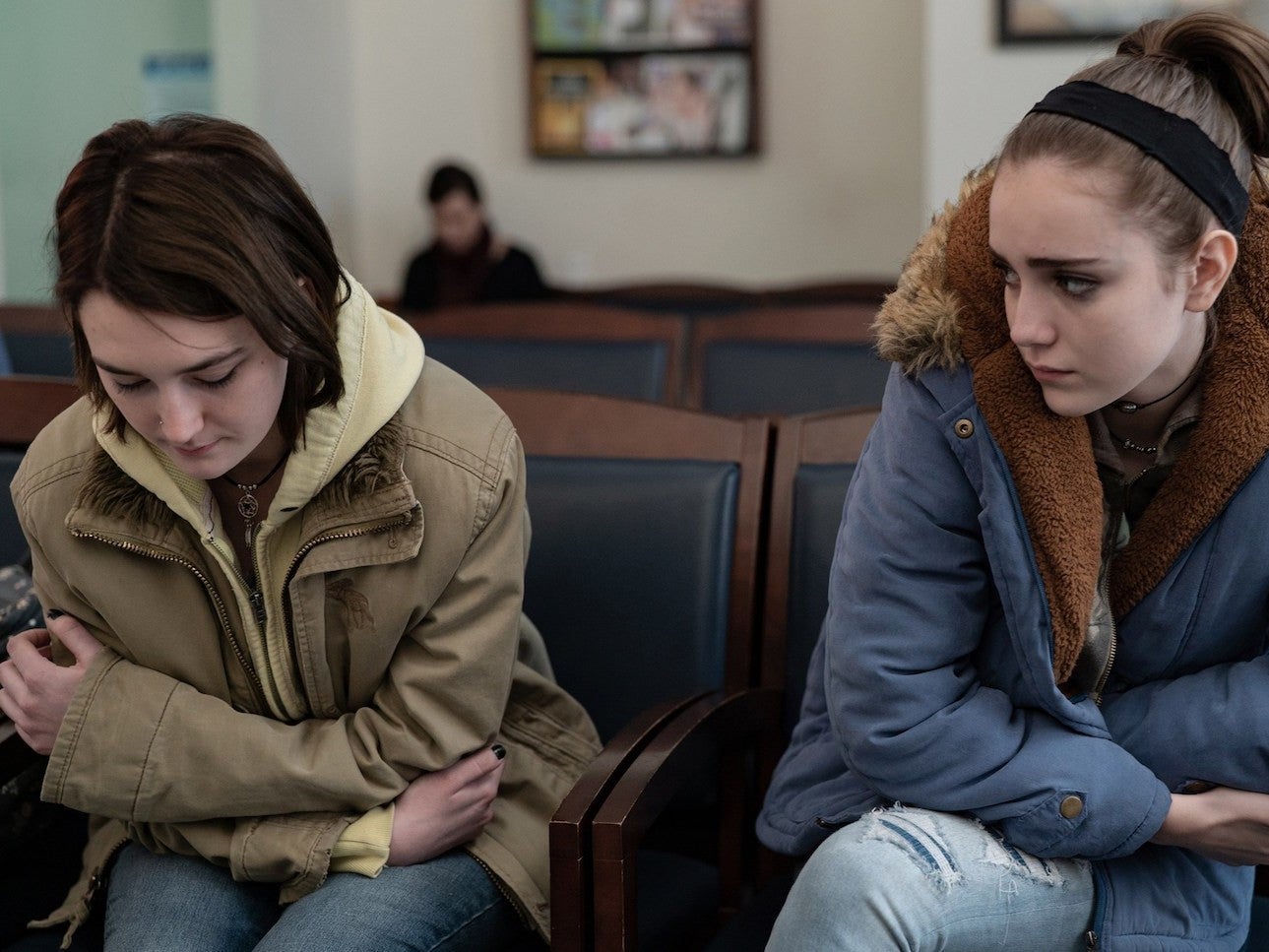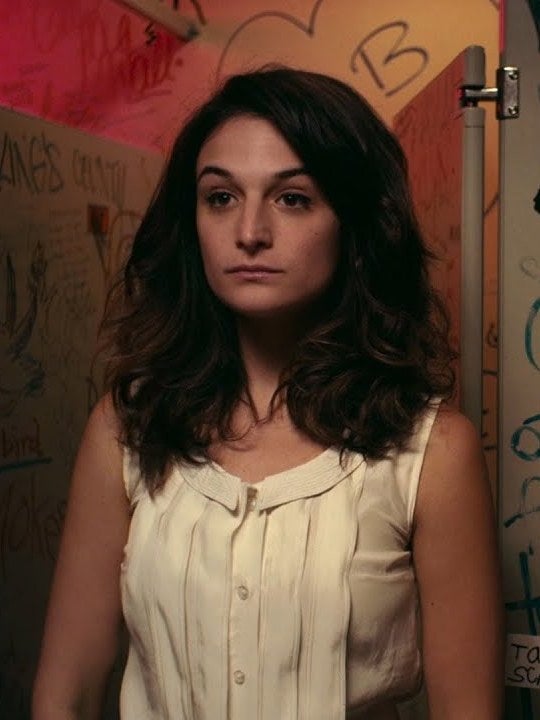‘Life is long, and this is one event’: Films like Saint Frances are finally getting abortion right
As women’s reproductive rights remain under constant threat, Beth Webb speaks to actor and filmmaker Kelly O’Sullivan about the importance of showing abortions on-screen


Your support helps us to tell the story
From reproductive rights to climate change to Big Tech, The Independent is on the ground when the story is developing. Whether it's investigating the financials of Elon Musk's pro-Trump PAC or producing our latest documentary, 'The A Word', which shines a light on the American women fighting for reproductive rights, we know how important it is to parse out the facts from the messaging.
At such a critical moment in US history, we need reporters on the ground. Your donation allows us to keep sending journalists to speak to both sides of the story.
The Independent is trusted by Americans across the entire political spectrum. And unlike many other quality news outlets, we choose not to lock Americans out of our reporting and analysis with paywalls. We believe quality journalism should be available to everyone, paid for by those who can afford it.
Your support makes all the difference.About 30 minutes into Chicago-set indie comedy Saint Frances, Kelly O’Sullivan’s Bridget undergoes a medical abortion. In-between forcefully vomiting and sitting uncomfortably on the toilet, the 34-year-old waitress spends the day in the arms of her lover, watching nature documentaries and reading chapters from Harry Potter.
“It was very important to me to have a sweet abortion montage,” says O’Sullivan – who drew on her own medical abortion for her screenwriting debut, which is out in the UK now – from her home in Chicago. “Women and girls walk away from watching abortions in film and TV feeling truly scared, and that might impact the way they think about making a choice like that for themselves in the future.”
To say that women’s reproductive rights in America are under constant threat isn’t a revelatory statement; in 2019, a rise in restrictions on women seeking abortions saw bans enforced in Republican states like Ohio, Georgia and Alabama, and just last month, the Supreme Court stepped in to block a controversial abortion law in Louisiana that would have barred almost all doctors from performing the procedure. Though the law wasn’t passed, pro-choice activists live in constant fear that the Court’s current conservative majority will undo the progress made by landmark cases such as Roe v Wade.
In the film and TV industries, however, attitudes seem to be shifting more quickly. Saint Frances is one of two American films released in the UK this year that are radically altering the discourse around abortion. The second is Never Rarely Sometimes Always, a bruising and often challenging drama about Autumn, a pregnant 17-year-old who travels to New York City when she’s unable to get an abortion in her hometown without parental consent.
The film, by Beach Rats director Eliza Hittman, is a reaction to the widely publicised death of Savita Halappanavar, a 31-year-old woman living in Ireland who was denied a life-saving abortion and consequently died in 2012, with the filmmaker using Autumn’s difficult journey to show gaping holes in the American healthcare system. From the revelation that the federally funded medical centre lied about how far along she is, to the painful questions asked in Autumn’s pre-treatment counselling session, Hittman captures the microaggressions and traumas with an unrelenting gaze, using each small plot point to pick a bigger whole in the fabric of a society not designed to protect young women.
“I think my film has a very unique premise about the legal barriers,” Hittman told Polygon at the time of the film’s release. “I’ve not seen that movie, and that’s why I wanted to tell that story. There are films like Obvious Child that do a good job of normalising and destigmatising. Then there are films that explore the back-alley coathanger abortions like Dirty Dancing. There are a lot of different representations, and for me, what made me really want to make this film is that at the core, it is about a journey.”
Unlike Never Rarely Sometimes Always, Saint Frances isn’t an overtly political film – but it challenges perceptions of abortion by extracting trauma and erasing doubt from Bridget’s experience. “We can be delicate and honest in the way that we treat it, but we don’t have to act like it’s the worst thing that’s ever happened to anybody,” O’Sullivan explains. “There are complicated and nuanced feelings shown, but none of them are guilt or regret. I wanted a character who as soon as she finds out that she’s pregnant is 100 per cent sure that she’s going to get an abortion.”
O’Sullivan was in her early thirties when she decided to undergo the procedure, and was stunned when she learnt that a medical abortion – one induced by medication rather than surgery – was available to her. “I didn’t even know that they were possible until I got one, and I’m a progressive woman who knows other women who have had abortions,” she says. She worked with director Alex Thompson – who is also her partner – to create a pragmatic yet kind depiction of the procedure. “We wanted it to be as accurate as possible,” she explains. “That meant including blood, because that was a huge thing that I dealt with after I had my abortion.”

The portrayal of Bridget’s sexual partner was also crucial. “I wanted him to be lovely and supportive; there are so many movies in which people could say, ‘Well, if she had just had a man who loved her, she wouldn’t have had an abortion.’ It’s not about the man; the man is there as a supportive character – this is entirely her choice for her life.”
As for other onscreen representations of abortion, O’Sullivan admires Céline Sciamma’s 18th-century-set queer romance Portrait of a Lady on Fire, in which a young handmaid’s unwanted pregnancy and abortion are secondary to the central love story. “I wanted to show how it’s everyday life, abortion,” Sciamma told Jezebel in 2019.
“I love that it’s one plot point – it’s not the entire plot,” says O’Sullivan of Sciamma’s film. “I think that’s another trap, when women are shown to be defined by this one event in their life. Life is long, and this is one past event. I would love to continue to see more specific stories exploring the intricacies of abortion without making it the crux of a woman’s life.”
O’Sullivan may not have to wait very long. In their annual report on the depiction of abortion shown in American television last year, the University of California documented 43 discussions and disclosures around abortion on screen – a record number – and suggested that Hollywood is beginning to more accurately approach the subject. “In a year defined by an unprecedented hostile policy environment to abortion,” read the report’s opening line, “Hollywood is depicting abortion onscreen more often and in increasingly complex ways.”

“Complex” is the operative word here. Myriad different stories have made their way onto the small screen over the past few years. When it premiered last March, TV comedy-drama Shrill made waves by featuring a surgical abortion in its opening episode, when Aidy Bryant’s character Annie learns that the morning-after pill is not as effective for overweight women. Orange Is the New Black was the first series to show an undocumented Guatemalan immigrant undergoing the procedure (albeit illegally). It’s even working its way into genre series, with Netlix’s sci-fi show Another Life broaching the subject in its season finale, hinting that an abortion in space could be a major plotline moving forward.
This seismic shift in narrative and representation comes after a decade in which women’s voices have gradually asserted themselves at the forefront of the discourse, and plotlines about abortion are increasing rapidly (just 13 were documented in the University of California’s report as recently as 2016) – even if the battle for parity between male and female writers and directors in Hollywood is still getting off the ground.
Milestone films in this uphill battle never quite broke into mainstream Hollywood, but still made powerful strides in showing different voices and attitudes towards the subject. In 2015, Sundance hit Grandma broke down the intergenerational barriers that often exist around abortion by showing a pregnant teen and her grandmother stand in solidarity on the subject, together raising the money needed for the procedure. A year prior, Gillian Robespierre’s Obvious Child was lauded for its groundbreaking storyline in which a woman (Jenny Slate) undergoes an abortion and then moves on with her life without regret.
“The film is a rebuttal to our culture,” Robespierre told IndieWire at the time of release. “Everyone has a right to tell an interesting story, but it was more like, ‘What is wrong with our culture that keeps on silencing this voice where one in three women will have had an abortion in their lifetime and yet the stigma surrounding it is full of shame and judgment and fear and anxiety?’”
Today however, there are still overlooked areas in storytelling when it comes to the subject: 65 per cent of the abortions documented in the University of California’s latest report focused on white women, when according to their research, the majority of abortions in reality are administered to people of colour.
And not all abortion-centric films are evolving the conversation. Just last year, Evangelical Christian production company Pure Flix released the anti-abortion propaganda film Unplanned. Despite instantly coming under fire for its harmful framing of abortion at a time when reproductive rights were especially vulnerable, the film received endorsements from prolific Republicans like Mike Pence and Donald Trump Jr and grossed $21m against its $6m budget.
“It’s just made me realise how many more abortion stories we need,” says O’Sullivan. “Pretty soon after I got my abortion, I was in a room where people were disparaging it and I didn’t say anything, because I felt some level of shame.”
In transmuting that shame, O’Sullivan has paved the way for storytellers to take a subject so readily partnered with trauma and turn it into something unremarkable. Normality may feel like a strange thing to celebrate in cinema, but for breaking down the stigma that still exists around abortion, it could be the most powerful tool at Hollywood’s disposal.
‘Saint Frances’ is in cinemas from 24 July
Join our commenting forum
Join thought-provoking conversations, follow other Independent readers and see their replies
Comments